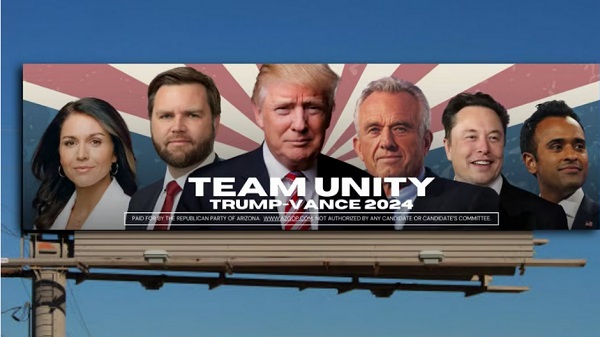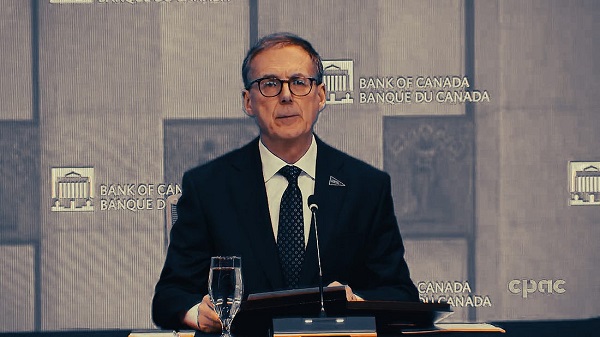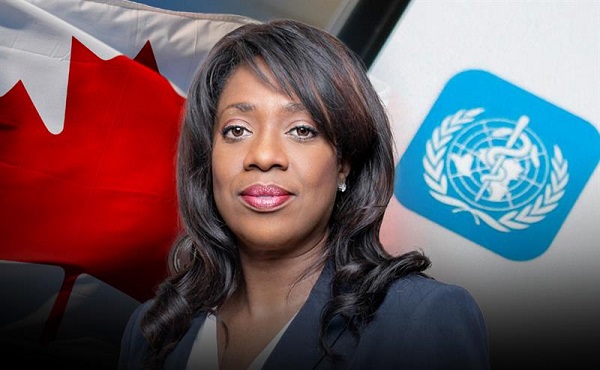Frontier Centre for Public Policy
Let’s Make Canada Great Again!

Trump’s Team Unity… Tulsi Gabbard, JD Vance, President-elect Donald Trump, Robert F. Kennedy Jun., Elon Musk, Vivek Ramaswamy… if they’re able to do all they’re promising, Canada will be more uncompetitive yet, writes Brian Giesbrecht and the best and brightest will leaveTrump campaign.
From the Frontier Centre for Public Policy
Trump will make America so tempting to the talented, that we’re going to get more uncompetitive still
“The number of people migrating to the US is not the main concern, more importantly it is who is leaving.”
The “brain drain” is a problem that has been a real concern for Canada at many times in our history. In the 1990s it was a topic fiercely debated by policy wonks, politicians and other concerned Canadians. Many of our best and brightest were benefitting from expensive college and university educations here, then promptly moving south for better opportunities.
Simply put, when Canada raises taxes, and stifles economic opportunity for young people here, while the Americans are lowering taxes and opening up their economy to the south of us, we can expect to see much of our best talent move south.
That’s what we have been seeing for some time now — doctors, engineers, trades and businesspeople of all types moving to escape the high taxes and the stagnant economy they see in what is today’s high-tax, big government, woke Canada.
Since 2015, housing costs have risen much faster than wages, making house ownership and rent costs absolutely punishing. Excessive immigration numbers have only added to the misery. Canada, for many years considered to be one of the best western countries in which to live is now one of the worst.
Canada’s current brain drain trickle can be expected to turn into a flood. Trump has promised to deregulate, lower taxes and “drain the swamp”. His appointment of Elon Musk and Vivek Ramaswamy to the mischievously named “DOGE” (Department of Government Efficiency) is evidence of his seriousness.
As evidence of how quickly things are turning, consider the huge stock market gains that happened as a direct consequence of Trump’s election. Clearly, the “smart money” is anticipating that Trump’s promises to “drill, baby, drill” and reinvigorate an over-regulated and over-taxed Biden economy are more than empty promises.
So, while right now Trump is busy trolling Democrats with his cabinet picks, by the time we get around to a spring election here it is probable that Trump will have the American economy galloping along. Meanwhile, at the same time that Trump is lowering taxes and deregulating, the Trudeau government is going in exactly the opposite direction.
Chrystia Freeland is determined to raise the capital gains tax. A capital gains tax hike will cause widespread damage. Meanwhile her proud socialist colleague, Steven Guilbeault — who has never seen an extra tax or regulation he doesn’t like — is dead-set on hiking Canada’s job-killing carbon tax yet again.
And let’s not forget the Trudeau affirmative action, DEI, merit-killing philosophy that has steadily eroded our competitiveness and standard of living. When contrasted with the Biden race-based version of the same, it was bad enough that Canada’s productivity continues to fall relative America’s. (Our sickly dollar is barely over 70 percent of theirs, while our government expenditures make up a staggering 44% of GDP.)
The contrast between the two economies can only be expected to become more pronounced as Trump’s America becomes increasingly merit-based. DOGE will take a meat cleaver to government spending, and the DEI, critical race theory Bidenite mush, will be trashed.
While Canada is still dealing with such woke idiocies as boys in girl sports, child mutilation in the name of gender ideology, and pretending to believe indigenous activist claims about secret burials of indigenous school children, Trump’s America will look very attractive to ambitious young Canadians who want to skip the wokeism, and raise their families in a country that rewards hard work. It will be hard to blame our best engineers, and tradespeople from heading down to exciting opportunities in Texas, Montana and elsewhere in the United States, when their talents are not appreciated here.
Many have already departed. Canadian accents are increasingly common in Texas. The contrast between a Trump America that rewards hard work, and a Trudeau Canada that only taxes it will be stark. Enterprising Canadians will face the choice of staying in a Canada that takes bigger and bigger bites out of paychecks, or moving to a country that doesn’t.
Let’s remember that many of our highly educated doctors and professionals are recent immigrants, with no special loyalty to Canada. Steven Harper also spoke of the “anywhere people” and the “somewhere people”. Those in the first category are the educated and privileged class whose have the money and talent that make it possible for them to move anywhere in the world on short notice. We need both the talented immigrants and “anywheres”, but they will be the first to leave.
Canada has gone through similar brain drain episodes before. During the 1990s there was a very real concern that we were losing far too many good people. A debt problem that began with the big-spending Pierre Trudeau government got steadily worse, our civil service was bloated, and taxes were far higher than they were for our American counterparts. To their credit, the Chrétien/Martin government introduced a budget in 1995 that helped with those problems.
The incoming Steven Harper government 2006-15 further stemmed the tide of departures by building a competitive economy that had our dollar at par with the American dollar. For a brief time the Canadian dollar was even higher! In these days of our pathetic 70 cent dollar it now seems hard to believe that even happened.
There seems to be little hope that the current Liberal government — still dug in in Ottawa — will take steps to make our economy competitive with Trump’s. As Kevin O’Leary explains, the damage that Trudeau has done to the Canadian economy is incalculable.
Canada has been on a slow downward slide since 2015. This has been Canada’s “lost decade”.
But there are reasons other than just the economic for wanting to leave. Under Justin Trudeau Canada has become not only a poorer place, but a directionless dystopia for many conservative-leaning Canadians. Extreme progressivism — “woke” — is the Trudeau Liberal religion.
As Eric Kaufman points out, extreme beliefs, such as “a man becomes a woman by saying so,” the belief in such economy-killing absurdities as “carbon-zero by 2040,” “borders don’t matter,” “merit-based hiring is systemic racism” etc are accepted by only a small minority of Canadians, and yet those are the policies the current government is forcing on everyone.
To add insult to injury we have Trudeau tweeting “a trans woman is a woman,” “we accept all comers,” “Canada is a genocidal nation,” and other such inanities. The great majority of Canadians do not want Trudeau’s “post-national state with no core identity” bilge. They want Canada back.
Trump has promised to rid his country of the extreme progressivism that Americans so convincingly rejected on Nov 5. Post-election surveys have revealed that the single most important issue that persuaded swing voters to vote for Trump was Kamala Harris’s support for taxpayer funding for transgender surgery for prison inmates.
This bit of woke craziness proved to be a bridge too far even for those who usually voted Democrat.
We can expect to see a virtual war on woke when Trump assumes power. In fact, it is already happening. Absurdities, like men forcing their way into women’s sporting events and women’s spaces will come to an end. Most Americans simply don’t want radical progressivism. As Professor Kaufman’s survey shows (above) — neither do Canadians.
The old saying is that living next to America is like sleeping with an elephant. Every time that the elephant moves, we had better do so too. With the election of Donald Trump, Canada must quickly adjust to the moves that elephant makes. Or suffer the consequences.
The chance to do so will likely be next spring, when Justin Trudeau will finally be forced to call an election. His election strategy will almost certainly be the same one he has used against previous Conservative challengers — he accuses them of being “like Trump.” But this time this strategy might not work.
If Trump’s America is humming along on all cylinders, while Trudeau’s weak, woke Canada looks pathetic in comparison, this time Canadians might say, “Yes, like Trump’s America. That’s exactly what we want!”
We need our best and brightest to stay here. We need to end the brain drain. We can do that by making Canada into a 2025 version of the Canada we used to know.
Brian Giesbrecht, retired judge, is a Senior Fellow at the Frontier Centre for Public Policy. He was recently named the ‘Western Standard Columnist of the Year.’
Business
Ford’s Liquor War Trades Economic Freedom For Political Theatre

From the Frontier Centre for Public Policy
By Conrad Eder
Consumer choice, not government coercion, should shape the market. Doug Ford’s alcohol crackdown trades symbolic outrage for sound policy and Ontarians will pay the price
Ontario politicians have developed an insatiable appetite for prohibition. Having already imposed a sweeping ban on all American alcohol, Premier Doug Ford has now threatened to remove Crown Royal, Smirnoff and potentially other brands from LCBO shelves. Such authoritarian impulses reflect a disturbing shift in our political culture—one that undermines economic prosperity and individual liberty.
After Diageo, the multinational behind brands like Crown Royal and Smirnoff, announced in August that it would close its Amherstburg, Ont., bottling facility, affecting 200 workers, the political response was swift. NDP MPP Lisa Gretzky urged the government to retaliate by pulling Crown Royal from LCBO shelves. Days later, Ford dramatically dumped a bottle of the whisky during a press conference, signalling he might follow through.
Now, the premier has escalated the threat, vowing to remove Smirnoff and potentially other Diageo products.
These gestures may make headlines, but they come at a cost. They undermine business confidence, discourage investment, and send the wrong message to employers. More fundamentally, they reflect a poor understanding of how free societies settle disputes and make decisions.
To understand what’s at stake, it helps to consider the two basic mechanisms available to democratic societies: the marketplace and the ballot box. At the ballot box, citizens vote once, and majority rule determines a single outcome. The marketplace, by contrast, allows people to vote continuously with their dollars. Individuals make countless choices reflecting their own values and priorities. You get what you choose—without overriding anyone else’s preference.
There’s a role for government in correcting market failures, where there’s fraud, monopoly power or public risk. But banning legal products simply because of political displeasure with a company’s decision is not market correction. It’s coercion.
Diageo’s decision to close a facility may be unfortunate, but it doesn’t involve deception, unfair dominance, or harm to the public. Bans aren’t rooted in sound principle; they’re political, plain and simple.
Some argue the government is justified in acting to protect Ontario jobs. But that line of thinking is short-sighted. If job protection alone warranted banning products, we’d resist every innovation or trade deal that disrupted the status quo. Sustainable job growth depends on encouraging investment and innovation, not shielding every position from change.
The appropriate response to plant closures is policy reform, not retaliation. Ontario should focus on creating an environment where businesses want to invest and grow. That means fostering a stable, competitive business climate with clear rules, reasonable taxes, and efficient regulation. Threatening companies with bans only creates uncertainty and drives investment elsewhere.
With Ontarians spending $740 million annually on Diageo products, removing them from store shelves would impose real economic costs. Consumers would face fewer choices, weaker competition, and higher prices. Restaurants and retailers would be forced to adjust. The LCBO, Ontario’s government-run liquor retailer, would lose sales.
This isn’t hypothetical. The province’s ban on American alcohol is already projected to block nearly $1 billion in annual sales, while doing nothing to benefit Ontario consumers. The LCBO is serving political interests, not the public.
Supporters of such bans often reveal their lack of confidence in public opinion. Rather than persuade others to boycott a product voluntarily, they demand that government enforce a blanket restriction.
There’s a better way. Consumer-led boycotts offer accountability without coercion. They allow individuals to act on their beliefs without forcing others to comply. And they tend to be more effective, as companies respond faster to falling sales than to political theatrics.
But the issue at hand goes beyond liquor. It’s about whether elected officials should impose a single set of preferences on everyone, or whether citizens are trusted to decide for themselves.
Each new ban makes the next one easier to justify. Over time, these interventions accumulate and normalize government interference in private choice. Unlike consumer preferences, which can shift quickly and reverse, government prohibitions often persist. The LCBO’s century-old structure is evidence of how long some policies endure, even when they no longer serve the public interest.
This isn’t a call to eliminate government’s role. But it is a call for principled governance, the kind that distinguishes between legitimate oversight and overreach rooted in symbolism or political frustration.
Ontario’s government would do better to focus on long-term prosperity. That means building an economy where investors feel welcome, businesses can grow, and consumers are free to choose.
Ontarians are perfectly capable of making their own choices about which products to buy and which companies to support. They don’t need politicians like Ford making those decisions for them.
Conrad Eder is a policy analyst at the Frontier Centre for Public Policy.
Frontier Centre for Public Policy
Canada Needs a Mandatory National Service

From the Frontier Centre for Public Policy
Retired lieutenant-general and graduate of the Royal Military College of Canada, argues Canada should establish a mandatory national service for all citizens under 30 to rebuild patriotism, civic trust, and national readiness.
Our country can’t defend itself, and citizens aren’t patriotic enough to step up. It’s time to change that.
I joined the military at the age of 18, right out of high school. My parents were working class and couldn’t afford to pay my university tuition, so although I was accepted to several good schools, I chose the Royal Military College of Canada, where I’d be considered part of the military and receive an annual salary. During the academic year, our job was to study. Then in the summer, we did military training. We graduated as second lieutenants—entry-level officers—and then did four years of military service.
I loved RMC. That’s where I learned about discipline, leadership and teamwork. After graduating I served in an armoured regiment in Quebec City, the 12e Régiment blindé du Canada. Eventually, I became a three-star general—a senior commander—and represented Canada in NATO. The military is where I met my wife, who served as a major in the Royal Canadian Air Force. Our experiences gave us a sense of purpose that’s we’ve passed down in our family: today, two of my four kids serve in the Canadian military.
But they’re in the minority. On the whole, the Angus Reid Institute finds that young Canadians are more reluctant to fight for our country than older Canadians, and pride in our armed forces has dropped significantly, from 79 per cent in 2019 to 54 per cent now. That decrease is coupled with a lack of trust in our public institutions. As of 2023, only a third of Canadians were confident in the federal parliament, and barely half reported confidence in the justice system and courts. Some might argue that Canadians are taking more pride in our country now than ever—U.S. President Trump’s tariff threats brought us together and started the “Elbows Up” boycotts—but even that has started to ebb. In any case, we shouldn’t need Trump or any outside influence to make us patriotic. Real patriotism doesn’t come through ideas and slogans, but through leadership and action. That’s why I believe that now, more than ever, Canada needs to create a mandatory national service for all Canadians under 30 years old.
The Canadian Armed Forces are facing a shortage of between 14,000 and 16,000 personnel. Meanwhile, our Arctic coastline is poised to become a site of global geopolitical competition as world powers eye its critical minerals, oil, gas and fresh water. Russian and Chinese interests in the region are expanding, and the ice is melting, opening us up to a looming scramble for northern waterways and seabed resources. If anyone wanted to come into the North and seize our natural wealth right now, there would be little we could do to stop them, short of a strongly worded diplomatic protest. We don’t have the necessary troops to defend ourselves—and the ones we do, we can barely transport up there.
Meanwhile, our country’s political, economic, and military weight has atrophied, and Canada’s international reputation is getting weaker. We’re no longer a strong player on the world stage. For example, in August, when a group of European leaders travelled to Washington, D.C. to discuss the war in Ukraine and support President Zelenskyy, Canada was not at the table—even though we are only a short flight away. We need to rebuild Canadians’ confidence before we can once again wield the weight of a strong middle power abroad. And we can do that by ensuring that Canadians love their country and are prepared to serve it.
The good news is that recent polls show strong interest in a mandatory national service program—especially if it’s broadened beyond the military. In an Angus Reid survey, 43 per cent of people supported the idea of mandatory military service, but about 70 per cent of people approved of a year-long mandatory service in the fields of public health support, environmental support, youth services and civil protection.
There’s much that young people can gain from serving their country. Early in my military career, I spent two years on exchange in France, where I commanded army conscripts. It was the late 1970s, and at the time, almost every 18-year-old male was required to serve in the French military. We received new appelés, or conscripts, right off the bus. They had long hair and lacked any prior military training or knowledge. But after 12 months of basic training, I could have taken my troop to war and won. Some of them, who had shown leadership potential, ended up becoming crew commanders in charge of an armoured vehicle.
These conscripts gained more than just the skills to shoot a rifle or drive a tank; they learned about their country and the importance of defending and serving it. Having a job to do gave them discipline, and they picked up small lessons like the importance of nutrition and staying fit. These basic but foundational habits can help set a person up for life-long health and success.
In France, a lot of the appelés hadn’t travelled much. Once they joined the military, they performed military manoeuvres across the country. When young people get to know their country and its people better, a sense of national pride emerges, along with an understanding of why their country is worth defending in the first place. In Canada, national service could have a similar effect. Imagine a young man or woman from Quebec is sent to serve in Alberta, or vice versa. How much could they learn from that experience?
Several NATO nations already have a mandatory national service system in place, including Lithuania, Estonia, Norway, Finland and Denmark. Lithuania’s system, which seeks volunteers and then uses a lottery to fill the remaining quota, is only for the military and applies to men ages 19 to 26. Estonia conscripts all men between 17 and 27, but other public service jobs are options for those with religious or moral reservations. Meanwhile, Norway’s highly selective conscription program selects several thousand of the most eligible men and women up to the age of 44, granting the nation 3.5 times more military personnel per capita than Canada.
If we’re going to have a national service program, we’ll need leaders in government to create a framework for it. In Canada, the federal government could designate several different streams of work, including defence, conservation, emergency and disaster response, health care, social services, digital infrastructure and youth development. When a young person turns 18, they would register for national service and suggest what stream they might prefer. If more people register than needed, a lottery system could determine who serves and in which stream. Those selected would enter training and take courses on civics and Canadian history, as well as stream-specific skills. They would then be deployed to a community, where they would serve for a year. Deferral beyond age 18 could be an option in some cases, as long as young people still entered service before a certain age, like 25 or 30.
Getting a system like this off the ground would require resources, training capacity and federal coordination, but it would be a worthwhile effort. Canada is faces severe wildfire seasons, an expanding cybercrime landscape and declining biodiversity. Our health-care system is anticipating a shortage of 117,600 nurses by 2030. Young people would emerge from service with a stronger sense of responsibility for their nation and the foundational skills necessary to help address the country’s biggest problems. And of course, those who choose to serve in the military could be added to the reserve, which would place Canada in a stronger position to defend itself in an increasingly aggressive world.
I envision national service as a paying job, which would make it more attractive to young people. And there could be other incentives for them to join—financial support for university, for instance, or guaranteed employment after service. Permanent residents could get a faster path to citizenship.
Citizenship in this incredible country comes with benefits, but also responsibilities. Once every young Canadian has worn a maple leaf on their shoulder, I think they’ll feel pride for their country—something that can unite us all and help Canada achieve its fullest potential.
Michel Maisonneuve is a retired lieutenant-general who served Canada for 45 years. He is a senior fellow at the Frontier Centre for Public Policy and author of In Defence of Canada: Reflections of a Patriot.
-

 Business2 days ago
Business2 days agoCanada heading into economic turbulence: The USMCA is finished and Canadian elbows may have started the real fight
-

 Internet2 days ago
Internet2 days agoMusk launches Grokipedia to break Wikipedia’s information monopoly
-

 Business2 days ago
Business2 days agoBill Gates walks away from the climate cult
-

 National1 day ago
National1 day agoCanadian MPs order ethics investigation into Mark Carney’s corporate interests
-

 National1 day ago
National1 day agoCanada’s NDP is now calling women ‘non-males’
-

 Business2 days ago
Business2 days agoFord’s Liquor War Trades Economic Freedom For Political Theatre
-

 Banks1 day ago
Banks1 day agoBank of Canada Cuts Rates to 2.25%, Warns of Structural Economic Damage
-

 Health2 days ago
Health2 days agoLeslyn Lewis urges Canadians to fight WHO pandemic treaty before it’s legally binding







